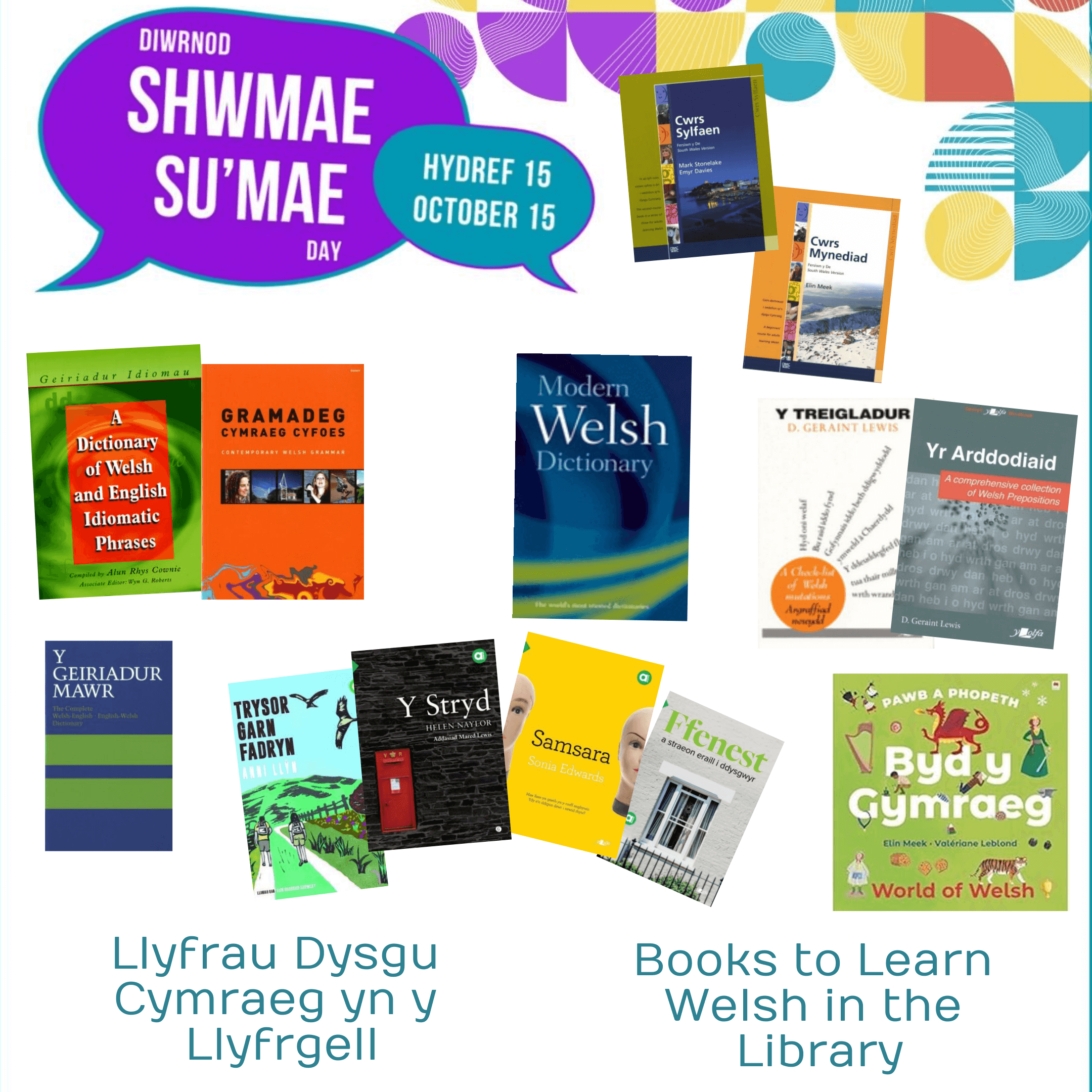

Having fun while speaking Welsh is the theme of this year’s Shwmae Su’mae campaign led by Mentrau Iaith Cymru. The event, which takes place annually on 15 October, is a national celebration of the Welsh language, wherever you live and whatever your level.
Whilst you’re here at Aberystwyth University, why not take advantage of some of the many special opportunities and resources available for learning Welsh?
Welsh courses delivered by Learn Welsh are free for Aberystwyth University students and staff. Find more information here: https://www.aber.ac.uk/en/learn-welsh/

To support your learning, the library has many thousands of Welsh-language resources for Welsh learners and speakers in our Celtic Collection. Here’s just a selection of what’s available on the library shelves.



From contemporary and classic fiction, poetry, to language and Welsh culture and history – find the entire Celtic Collection on Level F of the Hugh Owen Library. And search Primo, the library catalogue to find what you need.
We also have many Welsh-speaking or learning members of staff who can be identified by their orange lanyards. Felly rhowch gynnig ar siarad Cymraeg heddiw!

The first Shwmae Su’mae Day was held on 15 October, 2013 to promote the idea of starting every conversation in Welsh. The aim of the day is to show that Welsh belongs to everyone – fluent speakers, learners and those who feel their linguistic skills are a little rusty.



